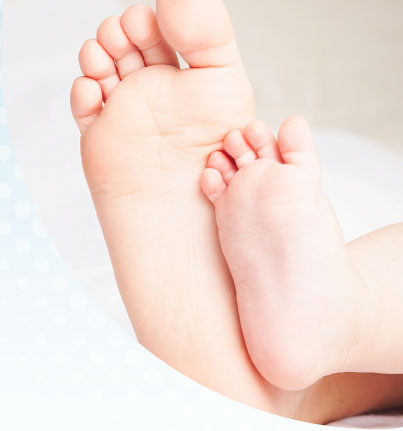Every young girl dreams of a beautiful time during her prime adolescent years when she is growing from a child into a young woman. She welcomes the changes in her body with an open mind and heart, knowing very well that this journey will take her to a different level in the future where she will stand as the woman with confidence and conviction. But alas! This dream for many becomes a long road trip with ups and downs. Irregular menstrual cycles, acne and abnormal hair growth, unnatural weight gains are few changes which are not welcomed by women. One major cause leading to such disturbances is Polycystic Ovarian Syndrome OR Polycystic Ovarian Disease (PCOS/PCOD).
Polycystic ovarian syndrome (PCOS), also known by the name Stein-Leventhal syndrome, is a hormonal problem that causes women to have a variety of symptoms. As the name indicates it is a condition in which the ovaries have multiple cysts like growths and the woman presents with a characteristic group of symptoms. Symptoms of PCOS begin in adolescence but in many cases it is diagnosed much later in life.
Causes of PCOS / PCOD
- Genetics seem to be one of the major factors in this condition and it is commonly observed that the patient’s mother or sister’s have the similar disposition.
- Hormonal imbalances is the major cause for the disturbances as it is noticed that women may have multiple cysts but do not fall into the category of PCOS since they do not present with the typical symptoms.
- Another hormonal abnormality in women with PCOS is excessive production of the hormone LH, which is involved in stimulating the ovaries and formation of cysts.
- A possible contributing factor in the development of PCOS includes a low level of chronic inflammation in the body and fetal exposure to male hormones.
Symptoms of PCOS / PCOD
- The principal signs and symptoms of PCOS are related to menstrual disturbances and elevated levels of male hormones (androgens).
- Menstrual disturbances can include delay of normal menstruation (primary amenorrhea), the presence of fewer than normal menstrual periods (oligomenorrhea), or the absence of menstruation for more than three months (secondary amenorrhea).
- Symptoms related to elevated androgen levels include acne, excess hair growth on the body (hirsutism), and male-pattern hair loss.
- Women who have PCOS do not regularly ovulate; that is, they do not release an egg every month. This is why they do not have regular periods and typically have difficulty in conceiving and sterility.
- Other symptoms which are associated with PCOS and related to hormonal imbalance are –
- Obesity and weight gain mostly centered around lower torso (apple shape)
- Elevated insulin levels
- Oily skin and Dandruff
- Skin discolorations or pigmentations
- In some cases elevated blood pressure and cholesterol.
Along with the above symptoms an ultrasound of the ovaries would confirm the diagnosis of polycystic ovaries.
Homeopathic treatment for PCOS / PCOD
- Managing PCOS with Homeopathy involves the deep acting, constitutional remedies which work on the patient’s entire endocrine system and correcting the Hormonal imbalance.
- It is this approach and concept of Homeopathy which helps in correcting the pathology associated with PCOS.
- The genetic predispositions, physical symptoms, symptoms related to the menstrual cycle are taken into consideration to prescribe the exacting remedy.
- Specific medicines like Apis and Iodum are prescribed for cystic ovaries and they also help in regularizing the periodical cycles.
- Polycrest medicines like Lachesis and Thuja alter the genetic blocks and are used as constitutional drugs.
- Experience of the Homeopathic doctors enables them to exactly come to the right remedy and control the condition to a great extent.
- Patients on Homeopathy are relieved from taking the hormonal drugs and its side effects over a period of time.

